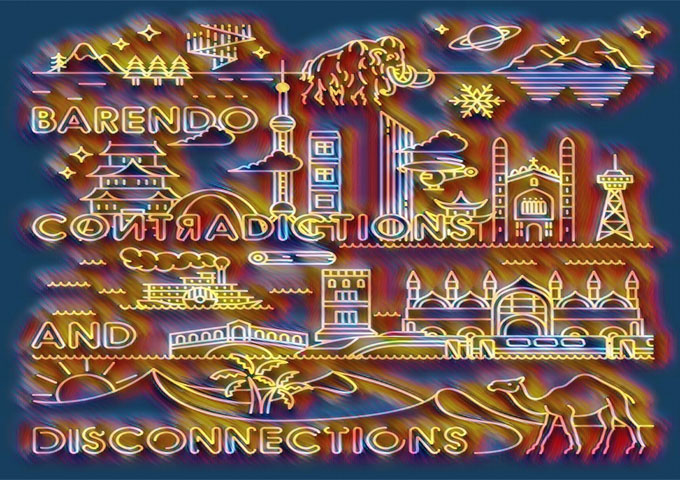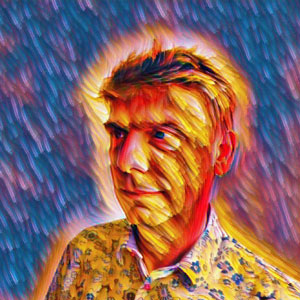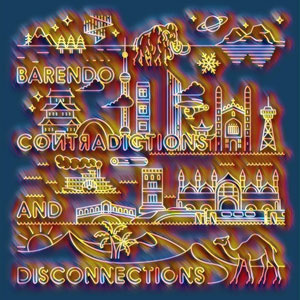
Barendo: “Contradictions and Disconnections” – a bridge between art and technology
Barendo, a songwriter from Amsterdam, recently released his 11 track debut album, entitled “Contradictions and Disconnections”. The Netherlands based artist describes himself as being influenced by Bowie, Depeche Mode and classical piano music. This music is beautiful, inspiring, engaging and fully dance-able in places, if your body still allows for that. The songs weave a dark and mysterious tapestry that uses electronic assets to great effect. Barendo’s voice is melodically distinctive, and a moving and prominent instrument in his work. The question is, where did this album come from? The last time I heard music blending themes this deeply, expansively, and yet in a quirky, poppy way, was during the eighties.
 Indeed, this record surpasses its influences in at least one way – the lyrics on this album have remarkable depth for mere alternative electro-pop motifs. I also learned that on a couple of songs – particularly “Dream Reader” and “Switching Sounds” – Barendo was inspired by Murakami’s “Hardboiled Wonderland and the End of the World”.
Indeed, this record surpasses its influences in at least one way – the lyrics on this album have remarkable depth for mere alternative electro-pop motifs. I also learned that on a couple of songs – particularly “Dream Reader” and “Switching Sounds” – Barendo was inspired by Murakami’s “Hardboiled Wonderland and the End of the World”.
Murakami Haruki is world-renowned as a novelist of magical realist fiction. His works are built around an almost obsessive urge to explore and understand the inner core of the human identity through metaphysical realms. This to my mind is a ringing endorsement of Barendo’s intellectual quotient.
But don’t even worry about the lyrics for now, you can study those for yourself once you get the album. Listen to the sound: early eighties influences are evident, but with modern production that includes ambient and downtempo elements, together with superb vocal melodies.
Offering a hybrid of new and old motifs, this gem is likely to not only please the long-standing fans of Barendo’s influences but grab a whole new generation of electronic music lovers. Barendo does not simply write songs, he construct music with use of sound and words.
Listen to the opening track, “Wake Up”, and the use of the percussion for a rhythm structure. Intriguing and remarkably disturbing, it contrast the vocal melody, which counters the syncopated synths. Barendo’s use of sound is staggering. And he is continually looking for sounds to incorporate into his music, which are adventurous and pleasing at the same time.
 Again, listen to how he uses the synth strings and bass lines in “No Signal”, in contrast to the vocals. Clearly he doesn’t write simple ditties, but constructs complex rhythm and melody pieces, in what appear as easy-listening indie songs. By the time I arrive at “Catch The Train” and “Paradox”, I am fascinated by Barendo’s ability to layer fantastic melodies over his sounds.
Again, listen to how he uses the synth strings and bass lines in “No Signal”, in contrast to the vocals. Clearly he doesn’t write simple ditties, but constructs complex rhythm and melody pieces, in what appear as easy-listening indie songs. By the time I arrive at “Catch The Train” and “Paradox”, I am fascinated by Barendo’s ability to layer fantastic melodies over his sounds.
On “Stay Today” he even comes up with pop melody that gets stuck in your head and demands re-listening. This is quite a feat, given the manner in which Barendo chooses to layer sounds. By this time you’re also enchanted by the resonating piano lines which embellish some of these songs.
The electronically dominated “Can’t Go” is yet another example of Barendo pushing the envelope that much further. The Dutch artist’s music stands on a bridge between art and technology and it’s the heart of “Wrangel” which best pronounces that fact within its construction.
This is quite possibly my favorite track on the whole album, alongside the brilliant and epically moving “Death In The Desert”, which has a nice Santana-ish guitar embedded into the arrangement. Barendo’s piano also plays a dominating role in the soundscape, as does his voice.
It’s powerful, emotive stuff — proof that electronic music can have soul, especially when blended with organic instrumentation. “Contradictions and Disconnections” is a fantastic album, as it finds an artist exploring his expansive melodic tendencies and melding them with darker rhythmic undercurrents, while retaining a sound that is distinctly his own.
OFFICIAL LINKS: BANDCAMP – TWITTER


